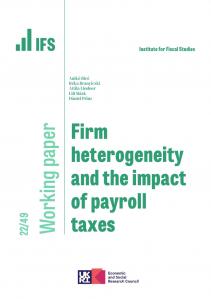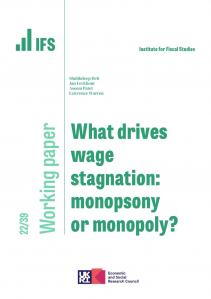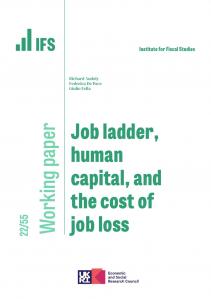This paper reviews UK industrial policy in the context of Brexit and weak productivity performance. It considers proposals made in a recent White Paper as well as more general arguments for reform now that the ‘post‐Thatcher consensus’ has ended. The desirability of improving horizontal policies in the areas of innovation, infrastructure and skills is noted. In the event of a hard Brexit, there would be an opportunity to return to 1970s‐style selective industrial policies and public‐interest‐based competition policy. An advantage of a soft Brexit is that it would preclude interventionism of this kind.
Authors

Nicholas Crafts
Journal article details
- DOI
- 10.1111/1475-5890.12174
- Publisher
- The IFS
- Issue
- Volume 39, Issue 4, December 2018, pages 685-706
Suggested citation
Crafts, N. (2018). 'Industrial Policy in the Context of Brexit' 39(4/2018), pp.685–706.
Related documents
View PDF
PDF | 131.14 KB
More from IFS
Understand this issue

Kwasi Kwarteng homes in on the right problems, but solutions don’t add up
26 September 2022

How do firms impact inequality?
16 June 2022

The NHS waiting list: when will it come down?
29 February 2024
Policy analysis

The IFS Scottish Budget Report – 2024–25
22 February 2024

Scottish NHS is treating fewer patients than pre-pandemic, despite big increases in staffing
9 February 2024

Is there really an NHS productivity crisis?
17 November 2023
Academic research

Firm heterogeneity and the impact of payroll taxes
24 November 2022

What drives wage stagnation: monopsony or monopoly?
26 September 2022

Job ladder, human capital, and the cost of job loss
13 December 2022